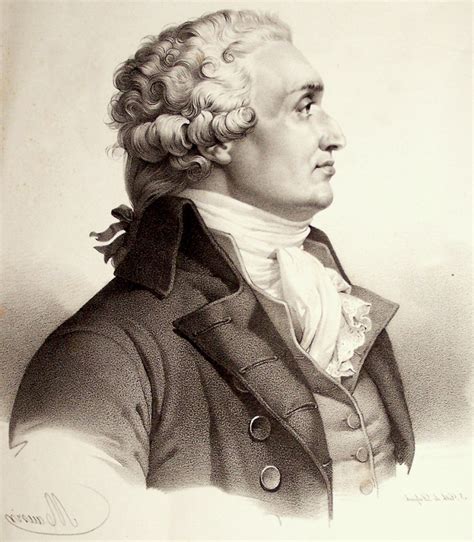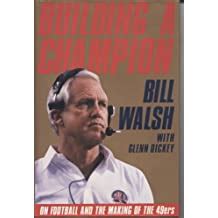A Quote by Lord Chesterfield
In order to judge of the inside of others, study your own; for men in general are very much alike; and though one has one prevailing passion, and another has another, yet their operations are much the same; and whatever engages or disgusts, pleases or offends you, in others, will, mutatis mutandis, engage, disgust, please, or offend others, in you.
Related Quotes
A man that hath no virtue in himself, ever envieth virtue in others. For men's minds, will either feed upon their own good, or upon others' evil; and who wanteth the one, will prey upon the other; and whoso is out of hope, to attain to another's virtue, will seek to come at even hand, by depressing another's fortune.
A Winner's Blueprint for Achievement BELIEVE while others are doubting. PLAN while others are playing. STUDY while others are sleeping. DECIDE while others are delaying. PREPARE while others are daydreaming. BEGIN while others are procrastinating. WORK while others are wishing. SAVE while others are wasting. LISTEN while others are talking. SMILE while others are frowning. COMMEND while others are criticizing. PERSIST while others are quitting.
Enjoy your own life without comparing it with that of another for there will always be others whose lives on the face of it appear better. However just remember and focus on the fact that your life could be much worse and be grateful it isn't. No matter what others or even you may briefly think you are lucky things aren't worse so be grateful.
The misfortune of others is our misfortune. Our happiness is the happiness of others. To see ourselves in others and feel an inner oneness and sense of unity with them represents a fundamental revolution in the way we view and live our lives. Therefore, discriminating against another person is the same as discriminating against oneself. When we hurt another, we are hurting ourselves. And when we respect others, we respect and elevate our own lives as well.
In fact, if you take any group of scores, it's likely that fifty to sixty percent are going to be so much alike that it's difficult to tell any difference among them. But I sometimes wonder if that has more to do with the quality of the art that's being made. There are always those composers who are going to move toward whatever is currently in fashion, there are others who will deliberately attempt to go in another direction. And sometimes, there are composers who will see themselves as being outside the stream and not even try to present their music to the general public.
My primary relationship is with myself- all others are mirrors of it. As I learn to love myself, I automatically receive the love and appreciation that I desire from others. If I am commited to myself and to living my truth, I will attract others with equal commitment. My willingness to be intimate with my own deep feelings creates the space for intimacy with another.
We will freedom for freedom’s sake, in and through particular circumstances. And in thus willing freedom, we discover that it depends entirely upon the freedom of others and that the freedom of others depends upon our own. Obviously, freedom as the definition of a man does not depend upon others, but as soon as there is a commitment, I am obliged to will the liberty of others at the same time as my own. I cannot make liberty my aim unless I make that of others equally my aim.
Judging others will avail you nothing and injure you spiritually. Only if you can inspire others to judge themselves will anything worthwhile have been accomplished. When you approach others in judgment they will be on the defensive. When you are able to approach them in a kindly, loving manner without judgment they will tend to judge themselves and be transformed.
There is another side [to ego] that can wreck a team or an organization. That is being distracted by your own importance. It can come from your insecurity in working with others. It can be the need to draw attention to yourself in the public arena. It can be a feeling that others are a threat to your own territory. These are all negative manifestations of ego, and if you are not alert to them, you get diverted and your work becomes diffused. Ego in these cases makes people insensitive to how they work with others and it ends up interfering with the real goal of any group efforts.
No matter how unreasonable others may seem, I am responsible for not reacting negatively. Regardless of what is happening around me I will always have the prerogative, and the responsibility, of choosing what happens within me. I am the creator of my own reality. When I [review my day], I know that I must stop judging others. If I judge others, I am probably judging myself. Whoever is upsetting me most is my best teacher. I have much to learn from him or her, and in my hearts, I should thank that person.
We would willingly have others perfect, and yet we amend not our own faults. We would have others severely corrected and will not be corrected ourselves. The large liberty of others displeases us, and yet we will not have our own desires denied us. We will have others kept under by strict laws, but in no sort will ourselves be restrained. And thus it appears how seldom we weigh our neighbor in the same balance with ourselves.
In democratic ages men rarely sacrifice themselves for another, but they show a general compassion for all the human race. One never sees them inflict pointless suffering, and they are glad to relieve the sorrows of others when they can do so without much trouble to themselves. They are not disinterested, but they are gentle.



































